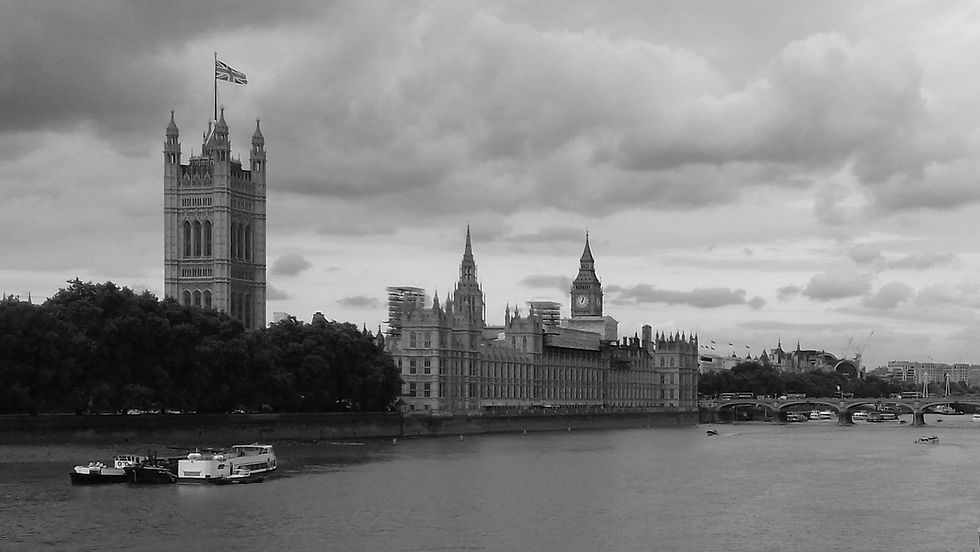THE PANDEMIC AND MUSIC EDUCATION
- Arts People

- Jan 18, 2021
- 3 min read
THE PANDEMIC HAS LED TO A FURTHER REDUCTION IN SCHOOLS’ MUSIC. WE MUST FIGHT FOR ITS IMPORTANCE.
It is ironic that this is the first Arts People blog for two years; during the time elapsed, we have been establishing our business and then coping with the challenges of the pandemic. Like so many others, our focus has been on the day to day. Compromises have been made. For our colleagues in school, it has been much tougher: of our own tutors, the majority are currently not working and, whilst their incomes from teaching are relatively safe, they are not currently able to earn from playing – a loss not only of money, but of purpose and enjoyment. For teachers and other school staff, the relentless tyranny of constant disruption and the requirement to support students at home has been exhausting. In all of this, music teaching has suffered.
In our previous blogs, we wrote of the pressures on music and art in English schools from the skew in league tables and testing. We explored the decline in curriculum time given to the arts. Nevertheless, we expressed optimism about the future. We are worried that that the pandemic has set back the potential for progress.
OFSTED FINDINGS
Ofsted has commented on this in its COVID-19 series schools’ briefings on schools. The October briefing noted that:
Primary school leaders said that they were making some adaptations to the curriculum within foundation subjects. Some were reducing the amount of depth covered in each subject, often to make time to cover learning in core subjects. Although many primary schools were teaching a full range of foundation subjects, some had chosen to postpone some subjects until later in the year.
In music, many leaders had made the decision to suspend singing and instrumental work for the time being. Other schools had introduced singing outside or were able to find alternative resources and large spaces inside to safely deliver their usual music curriculum.
This was confirmed in November:
Many key stage 3 pupils, for example, were doing less practical work, because leaders had prioritised key stage 4 and 5 to use, for example, the science, art and music rooms.
Most leaders in schools of all types said that extra-curricular and enrichment activity was reduced or halted due to risk assessments and pupils not being able to cross bubbles.
SURVEY EVIDENCE
In December, the ISM (Incorporated Society of Musicians) published the results of a survey of 1300s UK school music teachers that, for those of us in music education, made concerning reading, revealing the detrimental impact that COVID-19 is having on music education.
Teachers told of effects on the curriculum and extra-curriculum, on singing and music making and on instrumental learning. They also spoke of an impact on their health and well-being. Inequalities between students from different backgrounds are also being widened.
The report writers pointed out this adverse impact on music education comes on top of the trends we highlighted in our last blog. Even before the impact of COVID-19, music and other arts education was declining in schools. The ISM itself highlighted this in Music Education: State of the Nation (2019) with the University of Sussex and the All-Party Parliamentary Group (APPG) for Music Education. This report made 18 recommendations to the Government; none have yet been addressed.
In an editorial commenting on the report, The Guardian argued robustly for the value of school music, contrasting the value of musicmaking with the reduction in school time allocated to it, both before and during the pandemic. It concluded:
In this time of uncertainty and fear, ensuring that all children can access music-making is a cause deserving of meaningful support and attention from ministers.
MUSIC CAN THRIVE
It is possible to make music during the pandemic. Within schools, there is evidence that music can be made safely, provided safety precautions are followed. Recently, Arts People had the privilege of taking its first ‘COVID secure’ song writing and literacy workshop into a school. It is even possible to make music safely within a bubble. Advice is available to support this: for example, the Music Unlocked resources on the Music Mark website and those on the ISM CanDoMusic site. The latest lockdown has introduced more challenge, of course, but online provision and expertise has expanded, and this too can be done safely and well.
We urge, and are ready to support, schools to keep music alive and then to build the music curriculum back better for, as The Guardian said:
Academic progress is too narrow a gauge of success…music is fundamental to a well-functioning society.
References:




Comments